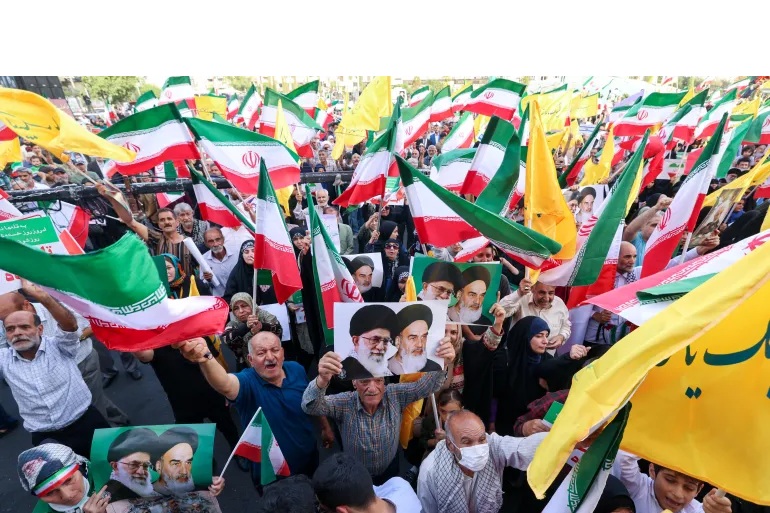As a fragile ceasefire brings a halt to 12 days of devastating conflict with Israel and the United States, Iran, on Wednesday June 25, 2025, moved swiftly to enforce sweeping new punishments for what it calls espionage and collaboration with hostile powers.
The war, which left more than 600 Iranians dead and targeted several nuclear facilities, has triggered a fresh crackdown inside the country.
Analysts say this is one that blends national security policy with harsh political messaging.
On Tuesday night, Iranian President Masoud Pezeshkian addressed the nation in a written statement, calling the end of the war a “historic victory.”
He warned that efforts to “sow discord and division” among the Iranian people would ultimately fail.
But even as state media praised the country’s resilience, parliament and the judiciary launched a series of legal initiatives that raise alarms among rights groups and international observers.
On Monday, Iran’s parliament passed a bill that intensifies punishments for anyone accused of espionage or aiding foreign states.
These are particularly Israel and the United States.
Lawmaker Alireza Salimi said the bill covers “any intelligence or espionage activity or practical action” that serves enemy nations and could be classified as corruption on Earth, a capital crime in Iran.
The new legislation also targets Iranians who provide services to hostile states in exchange for payment, property, or cryptocurrency.
It includes people associated with weapons that could “kill or create chaos and terror.”
Salimi noted the law is intended to “give the security forces a freer hand” in dealing with perceived threats.
Judiciary spokesperson Asghar Jahangir told state television that existing laws are too vague to address modern espionage and cyber operations effectively.
He cited challenges in prosecuting suspects arrested during the recent war, saying current legal frameworks “limit the judiciary’s ability to deliver appropriate punishment.”
This shift toward stricter laws is already being enforced on the ground.
On Wednesday, three Iranians were executed in Urmia, a city near Iran’s western border with Iraq and Turkiye.
The men were accused of smuggling equipment across the border used in the assassination of Iranian officials.
Though no names were disclosed, the judiciary hinted that the case may be tied to the 2020 killing of nuclear scientist Mohsen Fakhrizadeh, an act widely attributed to Israeli intelligence.
Since June 13, at least six people have been executed on charges linked to collaboration with Israel.
Authorities have arrested over 700 individuals nationwide, with ongoing detentions reported daily.
Provinces like Khuzestan, Kermanshah, Fars, and Gilan have seen dozens of arrests tied to allegations of sabotage and anti-government propaganda.
Amir Kholfian, prosecutor general of Khuzestan, announced that 23 people had been formally indicted for “acts of sabotage,” including the spread of anti-state messages.
Amnesty International, however, has condemned Iran’s post-war legal actions, stating they are being used to “instill fear and assert control.”
The group warned of “grossly unfair trials” and the real risk of further executions.
The crackdown also extends to the digital realm.
Iranians active on social media have reported receiving identical text warnings from the judiciary’s crime prevention unit.
The messages accuse recipients of following or engaging with online accounts linked to Israel and warn that such behavior constitutes a punishable offense.
“Considering that your number has a record linked with the pages of the Zionist regime,” one message reads, “you are warned to remove your supportive comments and likes and immediately leave those pages.”
In parallel, parliament approved new measures to regulate drones, which Israeli forces allegedly used to carry out precision attacks from within Iranian territory.
Lawmakers also backed a bill to suspend Iran’s cooperation with the International Atomic Energy Agency (IAEA).
They accused the organization of enabling Western attacks on Iran’s nuclear sites.
In an emotional session, parliamentarians shouted, “Death to America” and “Death to Israel” as they passed the bill.
Speaker Mohammad Bagher Ghalibaf, a former military commander, vowed that Iran’s nuclear program would now “advance stronger and faster.”
Some lawmakers even suggested Iran should consider withdrawing from the Nuclear Non-Proliferation Treaty (NPT) if its national security council sees fit.
Meanwhile, U.S. officials continue to debate the effectiveness of their recent strikes.
Reports from U.S. media suggest that despite the bombardment, some of Iran’s deeply buried nuclear facilities remain operational—prompting anger from President Donald Trump.
As Tehran projects strength and tightens internal controls, many Iranians are left navigating an increasingly perilous environment—one where suspicion, silence, and online behavior can mean the difference between freedom and death.







